News
-
 Space
SpaceWhy the 2024 total solar eclipse will be such a big deal
The sun will be very active during the next solar eclipse to cross North America, making it an excellent viewing and scientific opportunity.
-
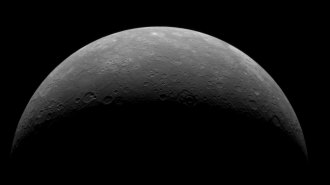 Planetary Science
Planetary ScienceSalt may have carved out Mercury’s terrains, including glacierlike features
Mercury may contain a planetwide cache of salt that has sculpted chaotic terrain and possibly even habitable niches.
By Shi En Kim -
 Physics
PhysicsHere’s how much fruit you can take from a display before it collapses
About 10 percent of the fruit in a tilted market display can be removed before it all crashes down, computer simulations show.
-
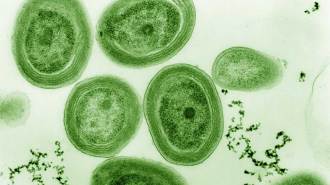 Life
LifeBacteria fossils hold the oldest signs of machinery needed for photosynthesis
Microfossils from Australia suggest that cyanobacteria evolved structures for oxygen-producing photosynthesis by 1.78 billion years ago.
-
 Health & Medicine
Health & MedicineFetuses make a protein that causes morning sickness in pregnancy
A hormone called GDF15 triggers a part of the brain involved in nausea and vomiting, a new study finds. Blocking its action may lead to treatments.
-
 Science & Society
Science & SocietyMost people say self-control is the same as willpower. Researchers disagree
Psychologists say self-control is about planning ahead to avoid relying on willpower in the moment. Laypeople see things differently.
By Sujata Gupta -
 Planetary Science
Planetary ScienceA toxic gas that could help spawn life has been found on Enceladus
Cassini data indicate that hydrogen cyanide, a key building block for life, exists on Saturn’s icy moon. A snakelike NASA robot might test for sure.
By Nikk Ogasa -
 Health & Medicine
Health & MedicineWhen it comes to physical activity, every bit counts
Biking to the store. Raking leaves. Playing with your kids. Scientists are getting a clearer picture of all the activities that offer health benefits.
By Meghan Rosen -
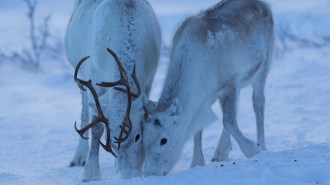 Animals
AnimalsReindeer can sleep while they chew
Brain waves and behaviors suggest that reindeer can doze while chewing, a timesaving strategy for sleeping under tough conditions.
-
 Psychology
PsychologyHere’s how to give a good gift, according to science
Gifting researcher Julian Givi outlines common mistakes gift givers make and how science can help us avoid those costly errors.
By Sujata Gupta -
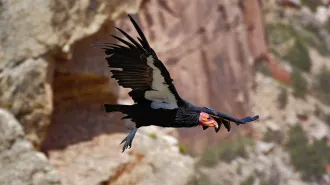 Life
LifeThe Endangered Species Act is turning 50. Has it succeeded?
After 50 years, this landmark law has kept many species alive — but few wild populations have recovered enough to come off the “endangered” list.
-
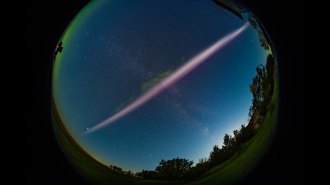 Earth
EarthSTEVE and other aurora-like glows perplex scientists with their complex physics
New views of STEVE from citizen scientists keep raising questions about the atmospheric light show — but computer models may offer some answers.